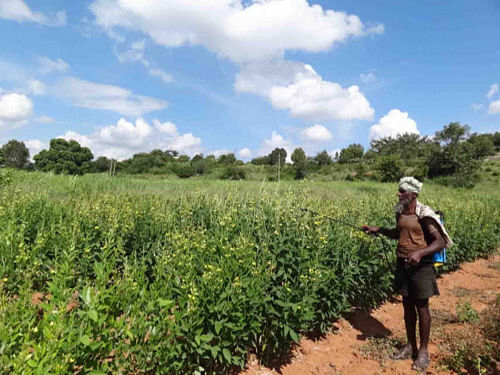
India has launched a $ 53 million project to phase out DDT by 2020 and replace them with Neem-based bio-pesticides that are equally effective.
India is the lone user of DDT, though only in the malaria control programme, while rest of the world got rid of the chemical that has a lasting adverse impact on the environment.
India on Tuesday entered into a $ 53 million (Rs 350 crore) partnership with the United Nations Industrial Development Organisation (UNIDO), United Nations Environment Programme and the Global Environment Facility to replace DDT with safer, more effective and green alternatives.
“As per the plan, the National Botanical Research Organisation, Lucknow, tied up with a company to produce Neem-based alternatives for the malaria programme. The production will start in six months,” Shakti Dhua, the regional coordinator of UNIDO told Deccan Herald.
Till last year, the annual DDT requirement was about 6,000 tonnes that has now been cut down to 4,000 tonnes as the government decided to stop using it in the Kala-Azar control programme.
A recent study by an Indo-British team of medical researchers found that using DDT without any surveillance is counter-productive as a vector control strategy as sand flies not only thrive but are also becoming resistant to DDT.
“It would be better to switch to another insecticide, which is more likely to give better results than DDT,” said Janet Hemingway, a scientist at the Liverpool School of Tropical Medicine. While the Health Ministry wanted to bring in synthetic pyrethroids, the United Nation agencies supports the bio-pesticides because of their efficacy and long-lasting effects.
“The new initiative would help check the spread of malaria and other vector-borne diseases. These include botanical pesticides, including Neem-based compounds, and long-lasting insecticidal safety nets that will prevent mosquito bites while sleeping,” Dhua said.
Ending the production and use of DDT is a priority for India as it is a signatory to the Stockholm Convention on Persistent Organic Pollutants (POP) of 2002 that seeks to eliminate the use of these chemicals in industrial processes, drugs and pesticides. DDT is one of the POPs.